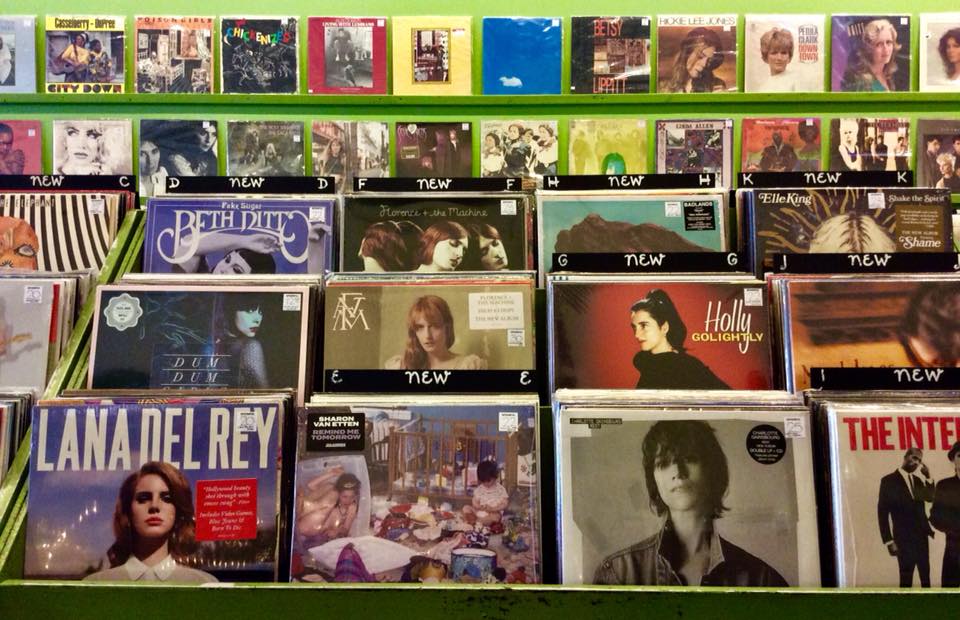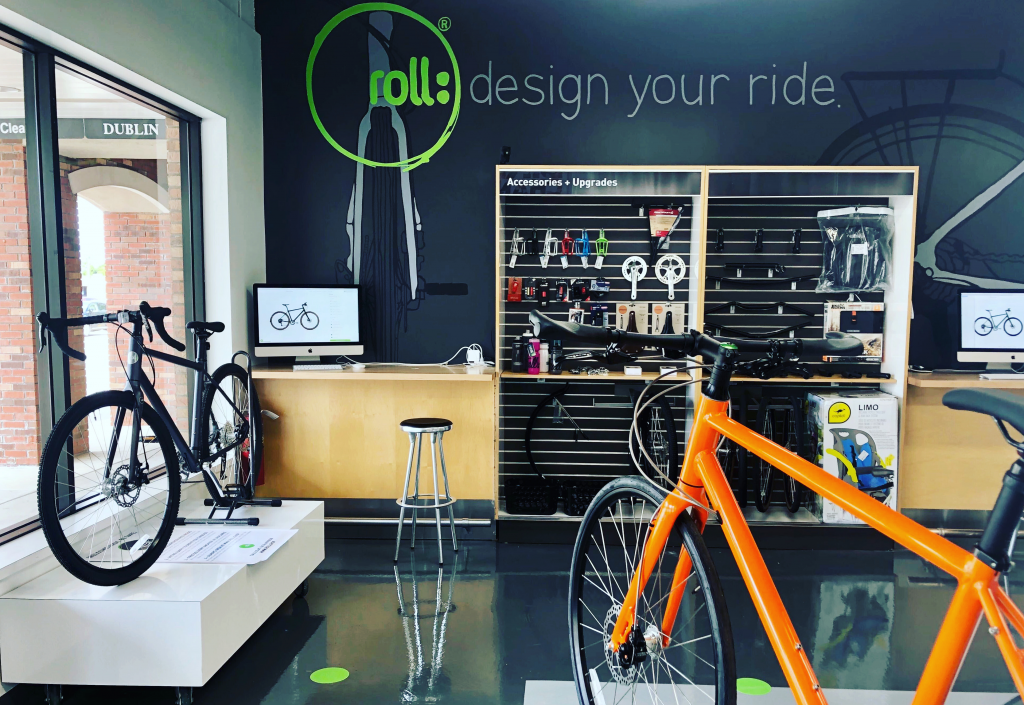Originally published in the June 2020 issue of (614) Magazine

It isn’t easy to outhustle Amazon. The point-and-click purveyor of everything certainly hasn’t been hurt by the current pandemic. It may be the only business immune to it.
Meanwhile, small shops struggle to survive until they can reopen their doors. For many, the shift to direct delivery was born of necessity. With taprooms closed, local breweries were among the first to offer to-you-door service. But they aren’t the only ones rapidly reinventing the way they reach customers outside their retail space.
Spoonful Records | spoonful-records.myshopify.com
The beloved local record shop never needed a robust internet presence, pushing off the prospect of online expansion for years. They assured patrons the reason their selection was so exhaustive was because you had to come into the store to shop. Unlike digital downloads, records aren’t really commodities. Condition matters and trusted curators who inspect and clean each album by hand are even more rare than some of their elusive inventory.
“We stayed open by appointment for about a week, while I worked on the website, which was finished the same day the governor shut everything down,” explained Amy Kesting, who owns and operates the bustling album emporium with her husband Brett Ruland. “I think there were only 20 items, but every day we add a few more things. Our customers know they can have the same confidence buying from us, even online.”
Kesting isn’t an amateur when it comes to the logistical challenges of online sales. Though Ruland focuses on trends and follows new vinyl releases, Kesting concentrates on collections, acquiring the balance of classic and obscure albums that define Spoonful Records. A dot-com era stint processing artwork damaged during shipping also gave her more than a little apprehension about the prospects of making such fragile merchandise mail-order only.
“From the get-go we had to figure out the right shipping price. A box cost $1.50—a good box, not the single-fold ones—and most media mail is like $3.50 to $4.50. So we’re charging $5.85 for shipping, and if it was close by, we just started delivering them ourselves,” she explained. “I was like, I can drop this off in Bexley, or go to Upper Arlington today. No problem.”
Local deliveries started by bicycle, but soon moved to excursions outside 270. They hired a driver to ensure same day deliveries when possible, but they still make extended record road trips themselves.
“We let everyone know on Facebook when we’ll be in their area, and they can just add to the order. One day, we went to Marysville, Delaware, and Powell and made a huge trip of it, like 15 deliveries,” Kesting recalled. “It rained the whole time, but was totally worthwhile. It was kind of like couples time, listening to music together along the way.”
Early enthusiasm has helped offset uncertainties about the future, particularly Record Store Day, the industry’s most notable annual event, already delayed twice. The retail closure has also afforded the opportunity to sort through a couple of recently acquired collections, not that Spoonful Records isn’t busy.
“We try to be humble and realistic, but April was our best month in at least the last two or three years that wasn’t a Record Store Day month or holiday sales month,” she noted. “We actually did more in sales through the website than we do normally in our brick and mortar. We’re so grateful everyone has been willing to support us through this, we wish we did it sooner.

Roll Bicycle Company | rollbicycles.com
Launching a new location in the midst of a crisis may seem risky, but Roll is hardly a traditional retailer, offering the expertise absent from typical online sales experiences. With three Central Ohio locations and a fourth already scheduled to open, shifting gears was essential to meeting the needs of customers in an entirely new way through curbside service and at-home pickup and delivery.
“We made the decision right from the outset to close our showrooms to the public out of an abundance of caution for the safety of our team and the community. It was a values-based decision for us,” revealed Stuart Hunter, founder and CEO of Roll Bicycle Company. “But that allowed us to quickly move to determining how to continue to best serve our team and our community while preserving our business.”
The closure of gyms coupled with the inherent social distancing of outdoor activities actually increased interest in cycling for fitness and riding for recreation. It was a surge that came the right time for Roll, which was already preparing for the beginning of their busy season.
“At the time, no one anticipated a boom of people wanting to get outside and exercise. People were still reeling from the implications of what was happening and there was a lot of concern about whether we’d actually have a business coming out of the other end of this,” he confessed. “So we launched a brand new web platform within a space of four days from start to finish where we took our entire inventory online.”
There was never a debate about whether bike shops were considered essential. Much like auto mechanics, selling and servicing bikes was a business that helped maintain transportation. But meeting customers at the door instead of inside and creating a pickup and delivery service from scratch were all unfamiliar terrain.
“Another challenge that was unanticipated was just how much strain the change would take on our team, just the speed of adapting so quickly. Everyone was working really hard, but we were also burning out really fast,” Hunter recalled. “So we decided to close our stores briefly and give everyone a paid break to just go home, ride a bike, and take a pause before we came back.”
Roll’s new Dublin store opened alongside existing locations in Bexley, Westerville, and Upper Arlington, but with new safety standards still in place. Though shortages have hit many retailers, regardless of industry, Roll’s evolution three years ago as a manufacturer of their own branded bicycles also helped smooth out supply chain disruptions of their signature product line.
“Like any small business, there was an incredible amount of anxiety about our ability to survive. I was wondering whether the past 15 years of my life were coming to a close. We are fortunate enough to be in a category that has high demand,” he noted. “But we fully recognize not all of our peers in the entrepreneurial community are in the same situation. I look around and see great people having a hard time right now, and I’ve been really pleased to see how the community has rallied around local businesses we hope will return and thrive again soon.” ▩